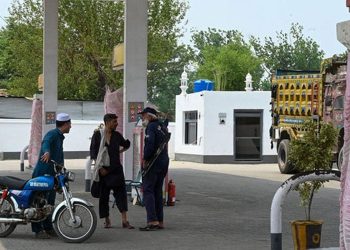The country’s constitution determines the roles and functions of every important institution of Pakistan. The powers of these institutions and their officers and heads are determined in the rules and regulations of the institutions.
However, there are numerous institutions in Pakistan which either do not work according to their limits or if they do, they exceed their powers which can be termed as a form of lawlessness. For example, a recent incident in the Supreme Court of Pakistan once again highlighted the issue of unfair use of powers by certain institutions and officers. The Chief Justice expressed his indignation during the hearing of a case on the abuse of power by the National Accountability Bureau (NAB).
Interestingly, NAB requested to the Supreme Court to freeze the account of the accused, there was 48 thousand 674 rupees in his account, on which the Supreme Court expressed surprise. The Chief Justice remarked that if there were 48 crores, there would have been something.
Incidents of misuse of powers by NAB as well as law enforcement agencies have become a cause of concern in Pakistan. Reports of police officers using excessive force, corruption, or improperly detaining individuals have surfaced on numerous occasions. These incidents not only violate the rights of citizens but also undermine public confidence in the authorities.
It is very important for law enforcement agencies to take all necessary steps to prevent such injustices. Similarly, incidents of bribery and nepotism during recruitment in the Public Service Commission have raised questions about the transparency of the process. Such illegal measures not only hinder recruitment on merit but also discourage qualified persons. It is important for institutions to respect the merit-based system, ensure equal opportunities for all and avoid favoritism.
If we examine the education sector, there have been cases of unfair use of powers. In some cases, school administrators and teachers have been found involved in corruption, such as embezzlement of funds for student welfare or bribery and nepotism. These measures not only question the quality of education but also hinder the development of future generations. Strict monitoring and accountability mechanisms are essential to prevent such exploitation and ensure a fair and inclusive education system.
Be it education, law enforcement or accountability or any other sector related to public interest across the country, there is a need for public representatives, officers and heads of institutions to prevent abuse of power and fulfill their responsibilities in an efficient manner.



























